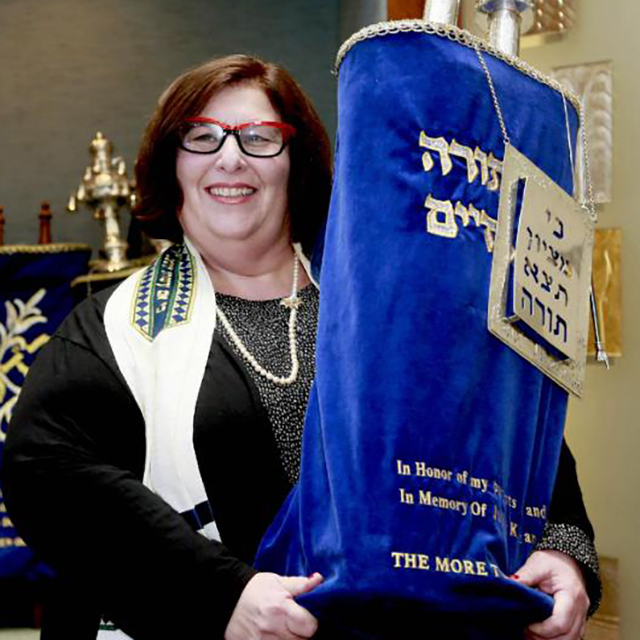
So it’s finally been done. The US Reform Jewish rabbi’s paved way for their first (openly) lesbian leader to come in and she’s doing everything right. It’s time to learn more about the first lesbian Jewish Rabbi in the US!
It was always Denise Enger’s dream to become a female rabbi, even though she knew she would never get the same respect and would never have a spouse or children. Ever since she was only a small child in Memphis, Tennessee she knew her path and began working in synagogues at the age of 12.
By the 1990’s Enger was taking real strides towards achieving her goal. She was a rabbinic student studying in New York but already aware she was different in another fundamental way; her sexuality. She was determined not to hide her true self from the world but found she generally stayed away from the mass populations and seminarians. Her best solution was to start her own group that held meetings for other gay and lesbian students in another borough.
Her ordination soon rolled around and admittedly she wasn’t out of the closet yet but with speculation high she made it through. She continued to give her encouraging words and create safe places for lesbians and gays to express their religion without harassment and safely.
She was then appointed as the first openly gay president of the Central Conference of American Rabbis, the rabbinical arm of Reform Judaism in Philadelphia.
According to YTNews “Eger, founding rabbi of Congregation Kol Ami in Los Angeles, isn’t the first openly gay or lesbian clergyperson to lead an American rabbinic group. In 2007, the Reconstructionist Rabbinical Association chose Rabbi Toba Spitzer, a lesbian, as its national president. But Reform Jews, with 2,000 rabbis and 862 American congregations, comprise the largest movement in American Judaism and have a broader role in the Jewish world.”
She never even had to give up the idea of a family. She now has 21 year old son and is also engaged to be married. She is a well informed, well spoken rabbi and activist for the LGBT community. Rather than singling them out she finds ways to bring them into their culture and not shut them out from family. She creates a safe place for people to pray and love.

